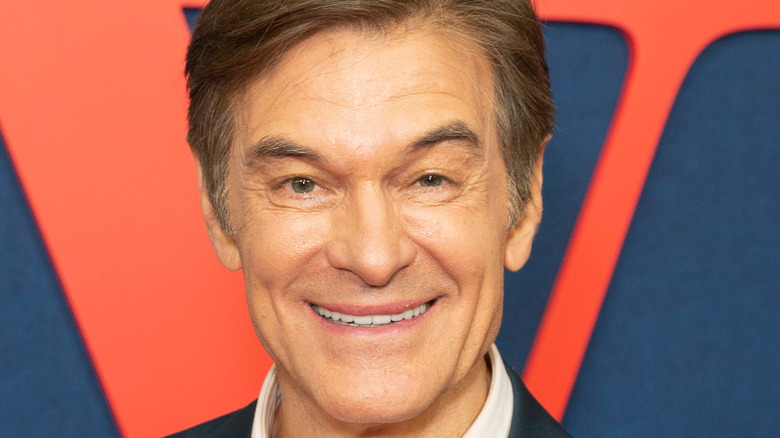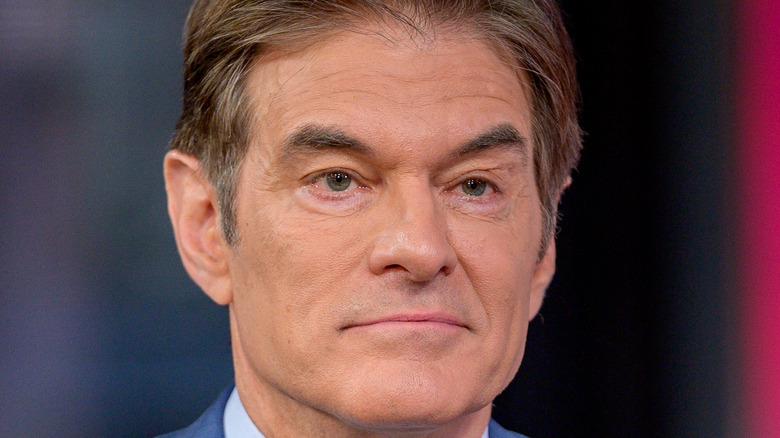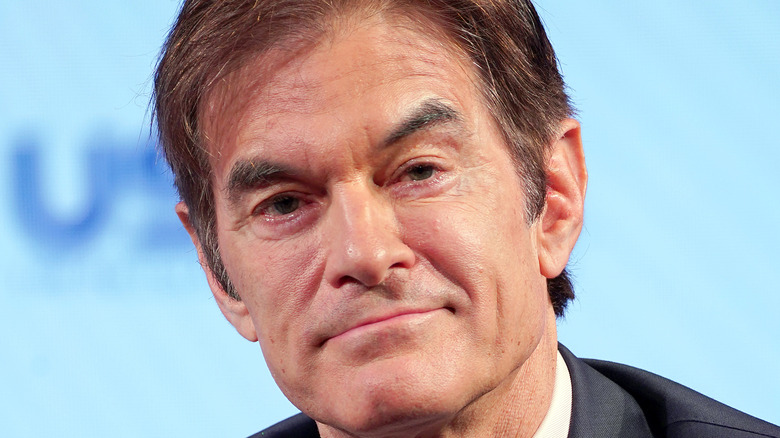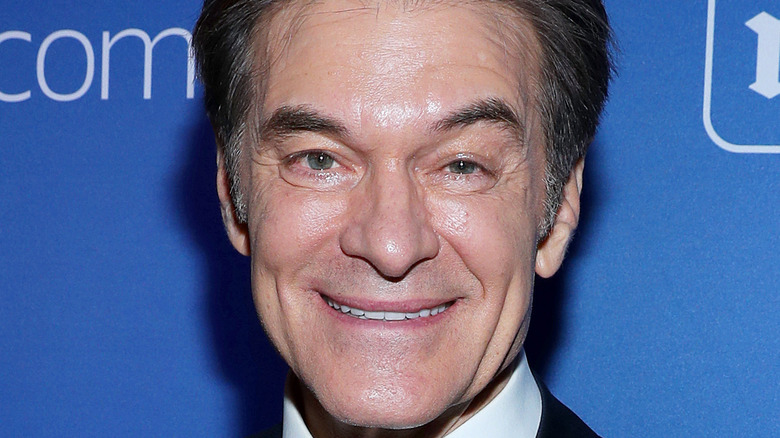The Biggest Controversies Surrounding Dr. Oz's Show
Dr. Mehmet Oz made headlines as 2021 drew to a close — and will likely make many more throughout 2022 as a Senate candidate for the Commonwealth of Pennsylvania.
Looking to win the open seat left by retiring Republican Senator Pat Toomey, Dr. Oz threw himself into the GOP primary race at the end of November just after frontrunner Sean Parnell bowed out amid domestic violence allegations (via Politico).
The TV doctor has already come under fire as a "carpetbagger" — meaning many do not consider him to be a real Pennsylvanian as he has only been renting a home in the state for a year, according to Philadelphia's local ABC station. He hails from Ohio but was raised in Delaware.
If Dr. Oz wins the nomination and makes it to the general election, he will be vying for a senate seat that has been deemed the most flippable for the midterms (via CNN), meaning that a Democrat is predicted to win.
As of this writing, Pennsylvania's lieutenant governor, John Fetterman, who won his last statewide election with 57% of the vote in 2018 as Governor Tom Wolf's running mate (via Ballotpedia), would be Dr. Oz's most likely opponent and is an unusual — and popular — politician who has no problem throwing punches.
However, Dr. Oz can also be a controversial figure, and some of the things he has said and done on his long-running medical talk show might come back to haunt him during the 2022 election season.
Dr. Oz established himself as a respected surgeon — until he landed on television
Before Dr. Mehmet Oz got into the celebrity doctor game, he earned a career for himself as a cardiovascular surgeon with a Harvard undergrad degree, an MBA from the Wharton School of Business, and a medical degree from the University of Pennsylvania.
By 1994, he helped found the Cardiovascular Institute and Integrative Medicine Program at New York-Presbyterian Hospital.
Nearly a decade later, in 2003, he made it to TV with one season of "Second Opinion With Dr. Oz," leading him to the attention of Oprah Winfrey, who would later have him as a frequent guest on her show. That exposure helped him debut a new program, simply titled "The Dr. Oz Show," in 2009 (via Biography).
During his years as a doctor and talk show host, he has come under fire for offering what some deem to be questionable medical advice, and, by 2015, doctors from Columbia University sent a letter to the dean of medicine asking him to remove Dr. Oz from the school's faculty, where he still held a position.
In the letter, the doctors and professors wrote the following, according to Vox: "Dr. Oz is guilty of either outrageous conflicts of interest or flawed judgements about what constitutes appropriate medical treatments, or both. Whatever the nature of his pathology, members of the public are being misled and endangered, which makes Dr. Oz's presence on the faculty of a prestigious medical institution unacceptable."
His COVID-19 comments may come back to haunt him
At the start of the COVID-19 pandemic in 2020, Dr. Mehmet Oz tried to reassure his viewers that the virus was not as dangerous as other medical professionals were making it out to be. Since then, more than 800,000 Americans have died from it, according to The New York Times.
In fact, Dr. Oz was one of the first proponents of using hydroxychloroquine to treat COVID-19 (via Distractify), something that former President Donald Trump touted toward the start of the pandemic that the FDA had to eventually warn against.
Dr. Oz came under even more fire when he told Fox News' Sean Hannity that opening schools at the height of the pandemic was a good idea.
"We need our mojo back," Dr. Oz said (via CBS News). "Let's start with things that are really critical to the nation, where we think we might be able to open without getting into a lot of trouble. I tell you schools are a very appetizing opportunity. I just saw a nice piece in The Lancet [medical journal] arguing that the opening of schools may only cost us 2-3% in terms of total mortality. And you know, any life is a life lost, but to get every child back into a school where they're safely being educated and being fed and making the most out of their lives with a theoretical risk on the backside, it might be a tradeoff some folks would consider."
Dr. Oz is forced to apologize for his COVID-19 school-opening comments
As CBS News pointed out, the mortality rate that Dr. Mehmet Oz referenced when advocating for school openings in April 2020 would be an increase in the mortality rate, not an overall death rate, which some people believed after his initial comments.
This forced the TV doctor, who was found to only tout medically sound advice 46% of the time, according to a 2014 study, to tweet a video explaining himself.
"As a heart surgeon, I spent my career fighting to save lives in the operating room by minimizing risks," Dr. Oz said in his video. "At the same time, I'm being asked constantly, 'How will we be able to get people back to their normal lives?' To do that, one of the important steps will be figuring out how do we get our children safely back to school. We know, for many kids, school is a place of security, nutrition, and learning that is missing right now. These are issues we are all wrestling with. And I will continue looking for solutions to beat this virus."
Despite some of his controversial comments and views on the coronavirus pandemic, he is still a proponent of vaccination and said as much when he announced his senate campaign in the Washington Examiner, praising Donald Trump's Operation Warp Speed, which helped develop the mRNA vaccines that help prevent severe illness if infected by COVID-19.



